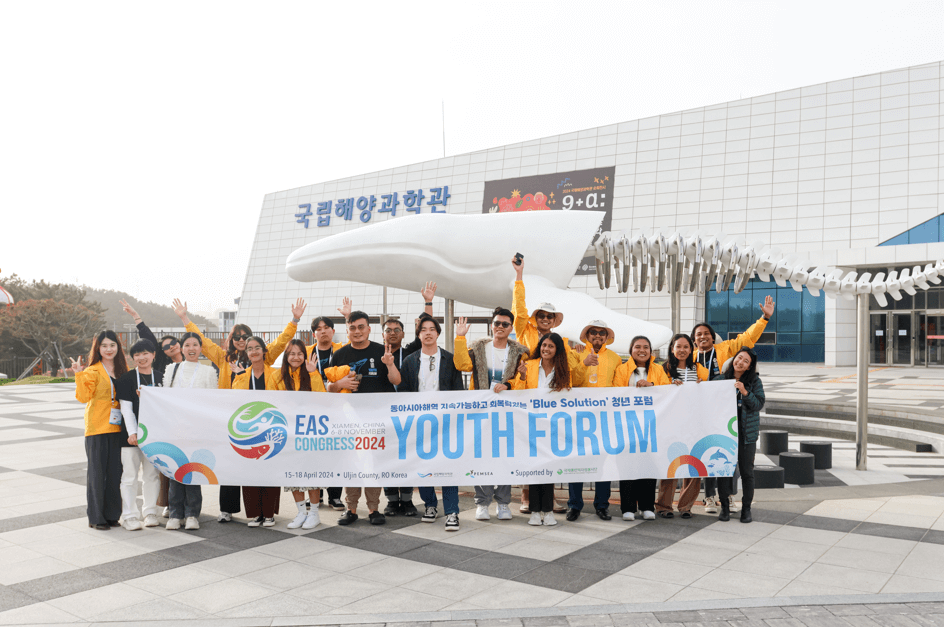Adapting to sea level rise by Dr. Vu Thanh Ca
Thursday, 22 July 2021

The United Nations Open-ended Informal Consultative Process on Oceans and the Law of the Sea (the “Informal Consultative Process”) held its twenty-first meeting in a virtual format from 14 to 18 June 2021. The meeting focused its discussions on the topic “Sea-level rise and its impacts”. The discussion panel was organized into two segments structured around (a) understanding the issue of sea level rise, its impacts and related challenges, and (b) international cooperation and coordination in addressing the impacts and challenges related to sea level rise.
One of the panel members was Dr. Vu Thanh Ca, Chair of the International Session of the Partnerships in Environmental Management for the Seas of East Asia (PEMSEA) and Principal Lecturer at Hanoi University. During the second segment of panel presentations Dr. Vu Thanh Ca, shared experiences from East Asia in relation to international cooperation and coordination for adaptation and mitigation, highlighting the effectiveness of regional mechanisms in helping States to implement adaptation measures, restore marine ecosystems, develop sustainable ocean economies, and improve human livelihoods. He also mentioned the role of PEMSEA in coordinating regional cooperation to adapt to sea level rise impacts in this presentation, titled “International Cooperation and Coordination for Adaptation to Sea Level Rise and Mitigation of Climate Change in the Coast of Viet Nam and East Asia”.
Dr. Vu Thanh Ca indicated that PEMSEA with its Sustainable Development Strategy for the Seas of East Asia (SDS-SEA) and other various projects are fundamental in sustainable development and adaptation to climate change and sea level rise in East Asia, while showing the Integrated Coastal Management Sites conducted by the cooperation between States in East Asia and PEMSEA. He also emphasized that the international cooperation and coordination for adaptation to sea level rise and mitigation of climate change in the coasts of East Asia is very significant for overcoming cross-border impacts. The international cooperation and coordination are also necessary to establish regional mechanisms for coordinating activities relating to international river basin sediment and water management, and protecting marine biological resource in East Asia.
The abstract of this presentation is reproduced below:
In recent decades, sea level rise has very serious impacts to Viet Nam and other coastal States in East Asia, especially China, Cambodia, Thailand and Indonesia. The most serious sea level rise impacts are increase in flooding due to high spring tides and storm surge, coastal erosion and salinity intrusion. The reduction in freshwater discharge and sediment loads to the coasts from rivers due to upstream dam construction, and the ground surface subsidence due to the withdrawal of ground water and high-rise buildings in cities make impacts of sea level rise more serious.
Other serious consequent of sea level rise to the coasts is the degradation or damage of important coastal ecosystems such as mangrove, seagrass and coral reefs. Accompany with the above- mentioned impacts of sea level rise are various socio-economic problems for coastal residents. Results of analysis of projected sea level rise impacts in coming decades under different climate change scenarios show that if no measure taken, mass displacement of coastal residents with huge socio-economic consequences can happen.
Through evidences in Viet Nam and other East Asia coastal States, it has been proved that international cooperation and coordination have effectively strengthen the coastal resilience for the adaptation to sea level rise and ensure a sustainable socio-economic development. The international cooperation and coordination have been implemented in various aspects, from technology transfer, financial aid to human resource building etc. Through international cooperation and coordination, Viet Nam and other East Asia coastal States, especially developing states, have better managed coastal resources and environment, protected coastal ecological services and improved livelihood of coastal residents.
Farther than adaptation, international cooperation has helped increasing clean energy use and coastal mangrove reforestation, and thus, reduced greenhouse gas emission and climate change. Future international cooperation and coordination are required more concentrated in technology transfer, financial aid to human resource building to better address impacts of sea level rise.
For more information on this event, see https://www.un.org/depts/los/consultative_process/consultative_process.htm



